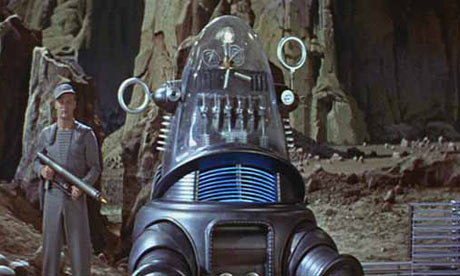
A recent blogpost by Jeff Prucher, freelance lexicographer and editor of the Oxford English Dictionary's science fiction project, lists his favourite words that are commonly used in science, but have their origins in science fiction.
He traces "robotics" to Isaac Asimov's 1941 story, "Liar!", which also gives us roboticist and robotic. There's "genetic engineering" from Jack Williamson's 1951 novel, "Dragon's Island". And there's "zero-g" from Arthur C. Clarke in the 1952 novel "Islands in the Sky".
Prucher lists nine in all, and they are all classics in my view, but I was interested that none of them come from science fiction published after the mid-1970s. Surely there are some words and phrases in more recent science fiction that are going to be in use by the scientists of tomorrow?
I had a bad stab at coming up with my own. The Disc pill in the headline refers to the gene Disc-1, which is linked to manic depression, and there's a strong demand for anti-depression drugs in every clichéd future dystopia, including my own.
The Higgs drive probably doesn't need explaining, but it's a piece of gleaming machinery that despite some very nasty accidents during development, allows people to move objects about as if they were weightless. It's not going to work of course, because most of an object's mass comes not from the mass of the quarks and electrons that make up the atomic nuclei, but from the energies that bind the subatomic constituents together.
So much for my first foray into the world of science fiction. I'll leave it to the pros in future...

